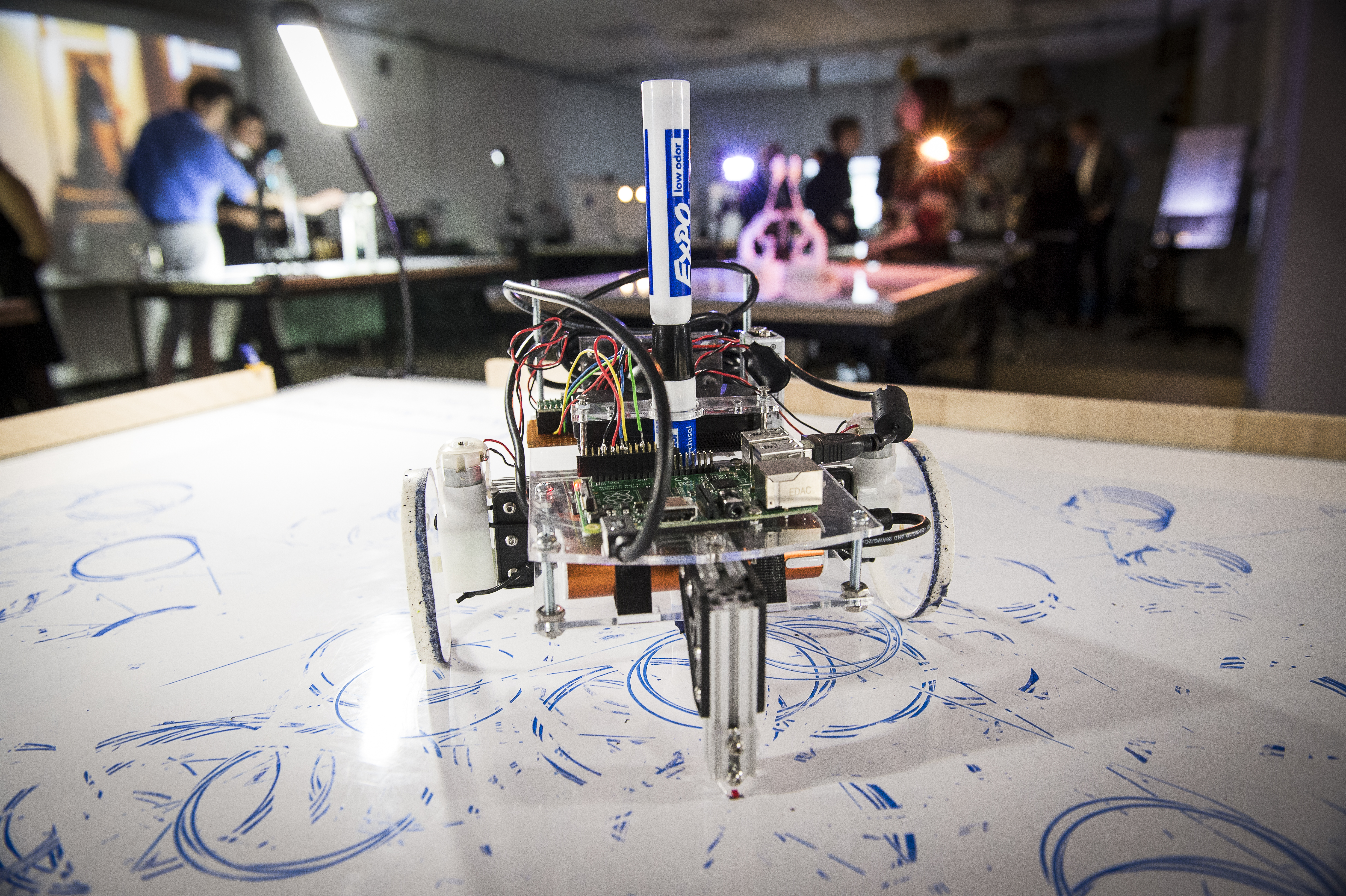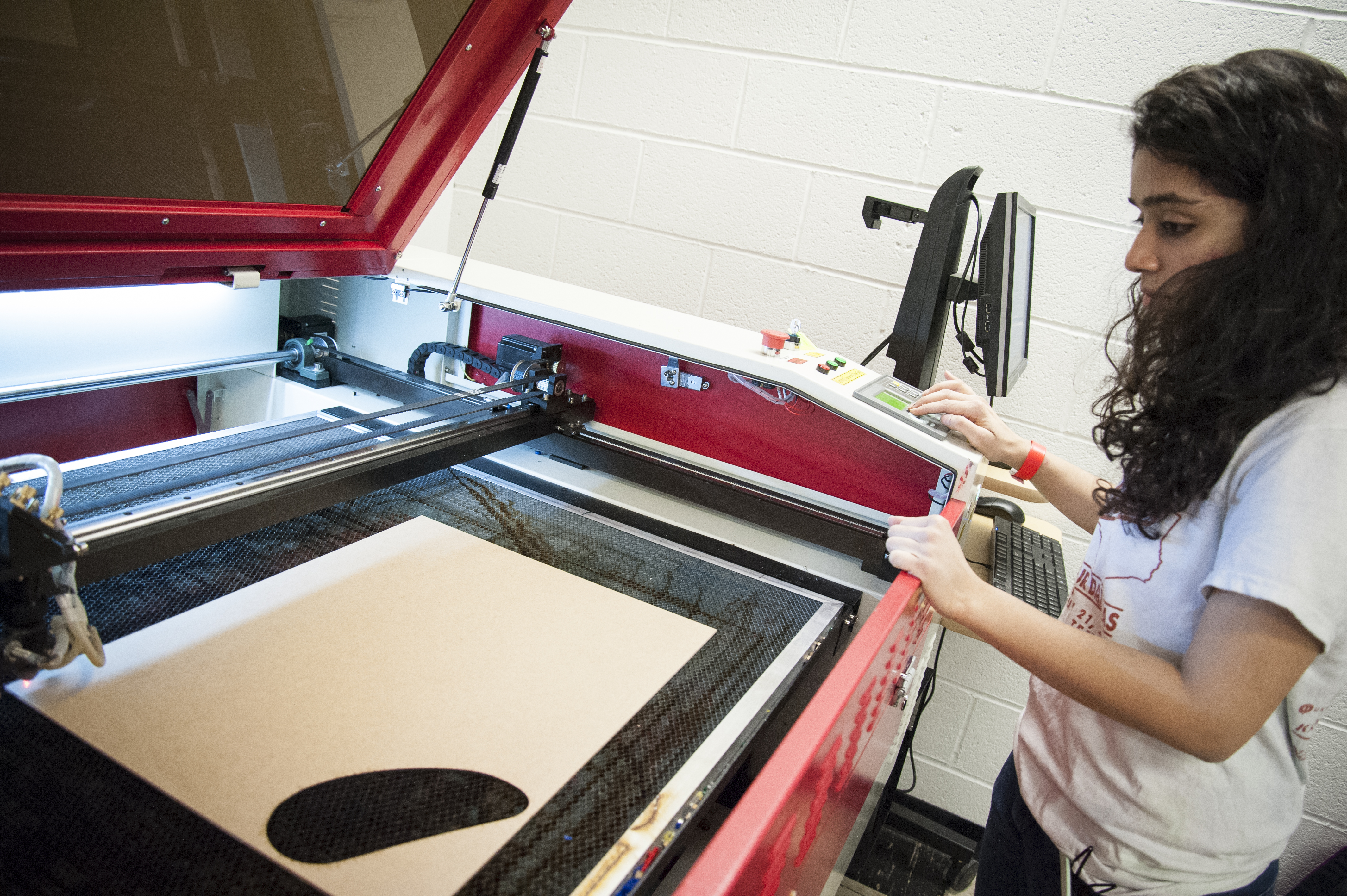Welcome Back! + TA Needed + RA Opportunity + TEDxCMU
Teaching Assistant Needed for 60-223 Intro to Physical Computing
Help your fellow students this semester! We are in need of a TA for 60-223 Intro to Physical Computing with Robert Zacharias. The class meets Mondays and Wednesdays, 9:30 - 11:20 a.m. The position is open to to juniors, seniors, or masters' students with experience in physical computing/electronics. If you are available and interested, please send a note to help@ideate.cmu.edu.
Research Assistantship on Laser Cutter Research
Wanted: Research Assistants to improve laser cutters
Project: Transforming Digital Fabrication Tools into Intelligent Shop Assistants
Our project in the Human-Computer Interaction Institute wants to turn digital fabrication tools (e.g., laser cutters, CNC routers, 3D printers) into intelligent shop assistants. This includes giving them the ability to do things like sense the materials they are working on, develop an understanding of their ability to function at different quality levels, negotiate the tradeoffs between quality and time, and sensing when something may have gone wrong, such as when they have caught themselves on fire.
This spring we want to develop a computational understand of laser cutter quality as a first step towards making tools that can reason about quality and can self-calibrate as the laser loses power and as the lens becomes clouded. We are looking for students that have experience using laser cutters who can help build a computational understanding of quality:
- Search the web for experts who share insights on how to improve the quality of a laser cutter’s cutting or engraving, for how to make high quality snap fits and friction fits, and how to reduce or eliminate scorching.
- Cut and Etch a variety of different materials on a large number of laser cutters to explore which techniques produce high quality and to learn the tradeoffs between quality and time. This includes things like making many passes on a cut with lower power and with refocusing of the lens; spraying down material with water to reduce scorching, tweaking how air flows to reduce the streaking of smoke across a piece of material.
- Design a test cut pattern/plan that allows a laser cutter to run a test and self-calibrate based on how it performs on the test cut.
- Coordinate with other RAs and members of the research team to design how the human expertise can best be encoded in a way that is accessible to the laser cutter.
We are looking for students with experience (or at least interest) in any of the following:
- Laser cutting and etching
- Digital fabrication
- Industrial design and the design of things to be assembled
- Craft
We need students who can commit 9 to 12 hours per week to this project over the spring semester. Work can be done for independent study credit (9 or 12 units).
If you are interested, please send the following to Nur Yildirim <yildirim@cmu.edu>
- short description of your experience and interest with digital fabrication and with working on a laser cutter
- resume
- list of times you are available for a weekly team meeting during the spring semester
TEDxCMU Opportunity for Students and Faculty
TEDxCMU is March 28th, 2020! During the event's 1.5 hour intermission is The Expo where creators, makers, researchers, startups, and others pursuing wonderful ideas informally showcase and discuss their work with the 400+ attendees in an exhibit-style setting. This is a wonderful opportunity for IDeATe students and faculty to showcase what they’ve been working on with the broader community. We would love to have some students and faculty from IDeATe present! If you are interested, please apply at http://bit.ly/tedxcmuexpo2020. Questions can go to Bennett Huffman, Head of Innovation for TEDxCMU.
RAship in Human-Computer Interaction Institute
Research Assistants wanted for the UX Design for AI project in HCII. The project is working to make it easier for UX designers to envision and prototype products and services that leverage the capabilities of AI. Part of this is helping design teams recognize “low-hanging fruit,” the obvious and low-risk uses of AI that professional design teams seem to miss. For example, the Starbucks app never learns who pays for their coffee with the mobile app and never automatically lands these users on the pay tab when they access the app while inside a Starbucks. Additionally, the Instagram app does not use predictive text so influencers must repeatedly type the same tags for every post they make.
This spring, they are looking for students RAs that can help with two different activities:
- Design Tools: the team has developed two different taxonomies that describe AI. One focuses on the capabilities of AI, what it can do. The other focuses on design patterns that are used when the output of AI systems gets presented to users. They need help from RAs to design new forms that make the AI capabilities and design patterns accessible to professional UX designers.
- Design Workshops: the team is working with two different companies to help train their UX design teams in recognizing opportunities where adaptive interfaces can automate the work people do. These are situations where a worker repeatedly performs the same task in the same way. An adaptive interface will learn the pattern a user follows in order to complete a task. It then begins to automate the work they typically do, reducing the effort needed to navigate and select items. They will work with these companies through workshops where their employees practice recognizing opportunities and generating adaptive interaction designs.
The team is looking for students that have training and experience with any or all of the following:
- visual communication design
- information design
- design teaching
- design facilitation
- interaction design
- wireframing transactional flows
- adaptive interface design
RAs will be needed for 9 to 12 hours per week over the spring semester. Independent study credit is an option.
If you are interested, please send the following to Changhoon Oh:
- short description of your experience and interest with adaptive interfaces, design facilitation, and information design
- resume
- list of times that you are available for a weekly team meeting during the spring semester
AlphaLab Gear 2020
AlphaLab Gear is a nationally-ranked hardware accelerator in Pittsburgh, PA. They guide early-stage physical product companies through a 30-week program that takes companies from an initial idea or prototype, through engaging early customers, to fulfilling demand by manufacturing at scale. Find out more and apply by 11:59pm on January 26, 2020 at alphalabgear.org.

